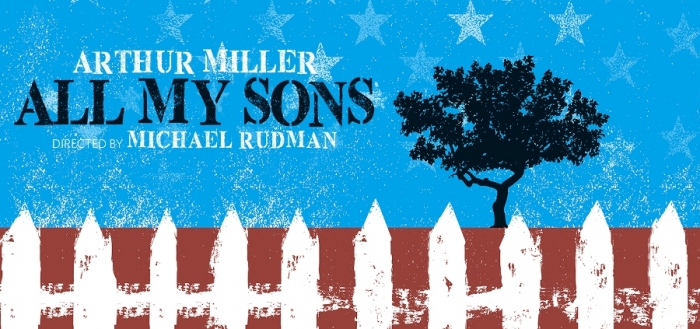
Like Death of a Salesman, American writer Arthur Miller’s earlier play, All My Sons, is a portrayal of the ‘American dream’ gone horribly awry. Driven by money and the dream of building a successful business to pass on to his sons, Joe Keller is complicit in a crime that ultimately leaves 21 pilots dead during the height of World War II. For years, he ignores the repercussions and denies any wrongdoing, but his actions later come back to haunt him in ways he never could have anticipated.
All My Sons was written in 1948, but the themes it covers are just as timely as ever. It is a story of deceit and greed, but also of family and country, and love and loss. As one of the highlights of the ongoing 45th Hong Kong Arts Festival, it is now playing at the Hong Kong Academy for Performing Arts’ Lyric Theatre in Wan Chai. The play, put on by Rose Theatre Kingston in London, made its exclusive Asian premiere here.
“There are certain men in the world who rather see everybody hung before they’ll take blame,” Joe says about his former business partner, who was imprisoned several years earlier for covering up cracks on defective aircraft engines and shipping them out to the war effort. The consequences, of course, were fatal. Joe denied involvement and was exonerated, but continues to remain blind to the fact that the ‘certain man’ he describes is a perfect portrayal of himself – not of his partner, who was only taking orders from Joe to conceal the cracks.
Further complicating matters is the fact that Joe’s elder son, Larry, a pilot in the war, went missing around the same time as the other pilots’ deaths. When the play opens, the audience learns that Larry has been missing for three years, yet his mother, Kate Keller, still holds out hope that he is alive.
Kate is one of the play’s most complex characters. Kate’s refusal to accept Larry’s death becomes a sickness, driving her to madness. She looks everywhere for signs that he is still alive–his horoscope, the fact that his memorial tree was blown over in a storm, newspaper clippings of other missing soldiers returning home years later. Her denial is deeply frustrating but also heartbreaking, as the audience later learns it’s a coping mechanism to avoid accepting an even harsher truth.
“Your brother’s alive,” Kate tells her younger son, Chris. “Because if he’s dead, your father killed him. Do you understand me now? God does not let a son be killed by his father.”
And then there’s Chris, the younger Keller son, who wants to marry his brother’s fiancée, Ann – who also happens to be the daughter of Joe’s jailed business partner. For this, he has to come to terms with the guilt of dating “Larry’s girl,” as his disapproving mother calls her, and later the guilt of knowing that his own father is responsible for the ruin of Ann’s father. All of this comes to a head when Ann’s brother, George, confronts Joe, and the Keller family learns how Larry really died.
Without revealing too much, the ending is harrowing – the kind of ending that leaves audiences almost too shaken to gather their wits and applaud the performers, even if the praise is well-deserved. The actor who portrays Joe pulls off the tricky task of getting the audience to sympathise–however slightly–with Joe’s plight. Everything about the play feels real, down to the costumes and the authenticity of the actors’ Midwestern accents (the play takes place near Cincinnati, Ohio).
As said best by the play’s director, Michael Rudman: “I got a good idea of the kind of acting Arthur Miller wanted in the hours I spent with him in auditions and rehearsals for a Broadway production of Death of a Salesman. He wanted actors who were truthful and interesting, but also capable of expressing deep emotion. That is the kind of actor that we wanted for this production.”
This production of All My Sons certainly achieves that. It is a classic that is well worth seeing on the stage. The play will run in Hong Kong through 11 March. For more information and tickets, click here.
Text: Emily Petsko



